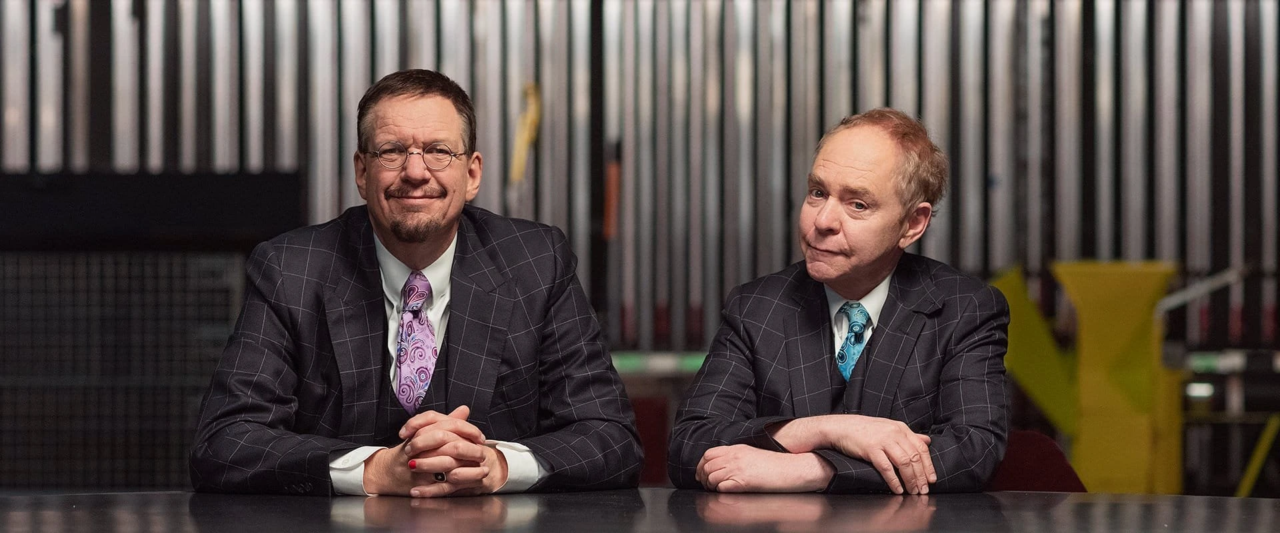Welcome back to my third blog post of my MasterClass blog series on Penn & Teller Teach the Art of Magic. Penn Jillette and Teller have been performing magic together for over 40 years. I love magic. I have always enjoyed learning and performing magic tricks. It’s exciting to be able to change a person’s perception of reality while bringing joy to others. Unlike some of the other MasterClasses I’ve been taking, I took this course because I am already interested in the topic and wanted to learn more. In this blog post I talk about some of the similarities between magic, mental health, and therapy, and some life lessons I learned from this MasterClass.
What Does Magic Have to Do With Mental Health?
How Magic Teaches Us About Our Reality & Emotions
“ Magic is the art of playing with reality.” It is an art form to help create wonder. Magic is all about changing your perception of reality. The role of the magician is to make something that is not real appear to be real. Magic plays with reality in a safe way, creating illusions that change our perception of what is real and what isn’t. When a magician does a trick, we know it’s not real magic, but for that moment, we can either put aside our logical brain and just enjoy the wonder of it, or we can be skeptical and try to work out the invisible workings behind the trick. The way we engage with the trick influences how we feel during the magic show.
Magic is the art of playing with reality.” It is an art form to help create wonder. Magic is all about changing your perception of reality. The role of the magician is to make something that is not real appear to be real. Magic plays with reality in a safe way, creating illusions that change our perception of what is real and what isn’t. When a magician does a trick, we know it’s not real magic, but for that moment, we can either put aside our logical brain and just enjoy the wonder of it, or we can be skeptical and try to work out the invisible workings behind the trick. The way we engage with the trick influences how we feel during the magic show.
This is just like real life. Our reality is based on how we perceive the world around us. Although we are in the same reality, how we perceive it and feel is different from one another. We can’t see everything that happens that affects what goes on in our lives, just like we can’t see all of the preparation, practice, and movements of a magician. There are invisible influences that will shape our emotions. Think of external events and situations as the magic trick. You can choose to take what you see at face value and allow it to control your reaction, or you can question it and think about everything invisible going on that led to that moment.
For example, if you are at the grocery store and a stranger starts yelling at you for seemingly no reason, you might reduce their actions to “they’re a jerk” and feel bad about what happened. It ends up ruining your day. But if you don’t take into account all that happened leading up to that event, and only think about what happened as a singular event (like thinking about a magic trick as real magic), you are allowing that event to dictate how you feel. There’s a lot that could have happened to that person at the store to make them mad that you don’t know about – the invisible workings behind the event. Maybe they recently lost their job, are coping with illness, or something else that we don’t know about. Just like we don’t see everything behind the scenes that a magician does to perform a magic trick, logically we know there’s something else going on and know that it’s not real magic.
Our perception is real, but it doesn’t make the illusion or external stimulus real. Another example is when watching a horror movie. Your fear is real even though what’s happening in the movie isn’t. Parents will tell their scared child, “it isn’t real,” to help them feel less scared. We can do the same thing when we are confronted with and external stimulus that makes us feel sad, angry, hopeless, etc. to help us cope.
How Magicians and Therapists Are Alike
Magic is the only truly empathetic art form. It can not be for the artist. A good magician, like a good therapist, will put you at the center of their work. The magician has to understand the experience of their audience, otherwise the illusion won’t work. What the audience experiences is the only thing that matters. A magic show is 100% about the audience, what they perceive, and how they feel, just like in therapy.
What happens to us in our lives is only a part of the equation when it comes to our emotions. It is our perception that often makes us unhappy, not the stimulus itself. While we can’t always control what happens externally (the magic trick), we do have the ability to change how we perceive things. Our reality and emotions are based on how we perceive things, we need to change our perception of what’s going on externally in order to feel better internally. You can exist in reality without constantly reacting to external influences. We can react when we need to react in order to avoid danger. Avoid intense reactivity if it doesn’t serve you. Therapy teaches you to change your perception of what is happening in your life. Think about what is causing you emotional pain. How is it a part of your reality? How can you perceive it differently? The goal of magic is to create a sense of awe, wonderment, and joy through changing your perception of reality. But just like with your own reality, you can choose to look beyond what is immediately in front of you and remember that it is an illusion.
Magic and Self-Esteem
“The strongest lies are the lies the audience tells themselves.” Penn and Teller use this idea to create a magic trick that the audience believes. When there’s missing information, our own minds create a narrative to fill in the missing pieces. It’s harder to refute the lies we tell ourselves than the lies other people tell us. Magicians craft illusions that look like information is missing, so the audience is left to fill in the missing blanks themselves, creating a narrative in their own minds that they can’t dispute.
When it comes to self-esteem, it’s difficult to undo the beliefs we’ve created about ourselves. For example, “the reason she didn’t call me back is because I’m unattractive.” Or, “I can’t get a date because I’m overweight.” You can’t see everything that’s happening, so you fill in the blanks with your own narrative. No one told you’re overweight or unattractive – you told yourself this and are unable to undo the beliefs you created. Therapy teaches you how to check your own cognitive distortions. When we don’t have all the info, we make the most sense according to our emotions – not reality. We should question those narratives – those are the hardest to dismantle.
Whether you’re 4 or 40, magic reduces us to wonderment. Are you willing to be a fool for a moment? Or challenge yourself knowing it’s not real? “I’ll try to figure out this trick.” Apply the same disbelief to your own thoughts. You can choose to believe the lies you tell yourself or try to figure out why you feel the way you do. “This is not real.” Don’t make assumptions that don’t serve or help your emotional health.
Changing Culture – it is not just place-based


In their MasterClass, Penn and Teller talk about the culture of magic. Culture is not just-place based, it can also be activity-based. Activity-based culture (like magic) breaks through geographic boundaries. Every activity, sport, hobby, etc. has a culture that comes along with it. We have to learn and understand a culture as a way to become integrated into that culture. When Penn and Teller became magicians, they realized they didn’t like all aspects of the culture of magic. So they adopted their own code of ethics to change that culture. They rejected some of the standard magic cultural practices that they believe to be unethical and changed the rules to create their own new culture. Magic has been around forever, but there were things about it that seemed unhealthy and unethical. Certain types of magic and mentalism are based on the art of acquiring information without the audience member realizing it. They will argue that it brings comfort to that person so it’s OK, but Penn and Teller believe that using vulnerability to exploit people crosses ethical lines. They created their own set of rules that include explicitly telling the audience that their tricks are just illusions and not real.
So if there’s something in your culture, either with friends, family, at work, geography/location, or activity that you don’t like, you are allowed to create your own set of ethics and rules to live by. You are part of this culture, and if there are things you don’t like, you don’t have to go along with it. Change it! You have to be willing to break the mold, but remember there could be consequences.
For example, views on gender norms and sexuality are often derived from place-based culture, but can also be unhealthy. Or a toxic work culture that is misogynistic or hurts your mental health. Can you change the culture with your family, friends, or at work? Can you start your own culture?
Penn and Teller’s story teaches us that we don’t have to suffer in a toxic or unhealthy culture. We can find the courage to try to change the culture we are a part of or leave it for a different one. While it’s easier said than done, therapy can help you understand what your priorities and values are, and create a culture that benefits your mental health.
Want to Learn a Magic Trick?
If you want to learn how to do your own magic trick, check out Penn and Teller’s MasterClass. Fun Tip for Parents of Teens: Learn a magic trick and then do it for your teenage child. Think about their experience as the audience member. Remember, magic is a truly empathetic art form, so in order to succeed you have to focus on the perception and reaction from your teen. See if you can get them to engage with you and be in wonderment for a bit. Learning a magic trick for your teen as the audience member will help you connect with them.


